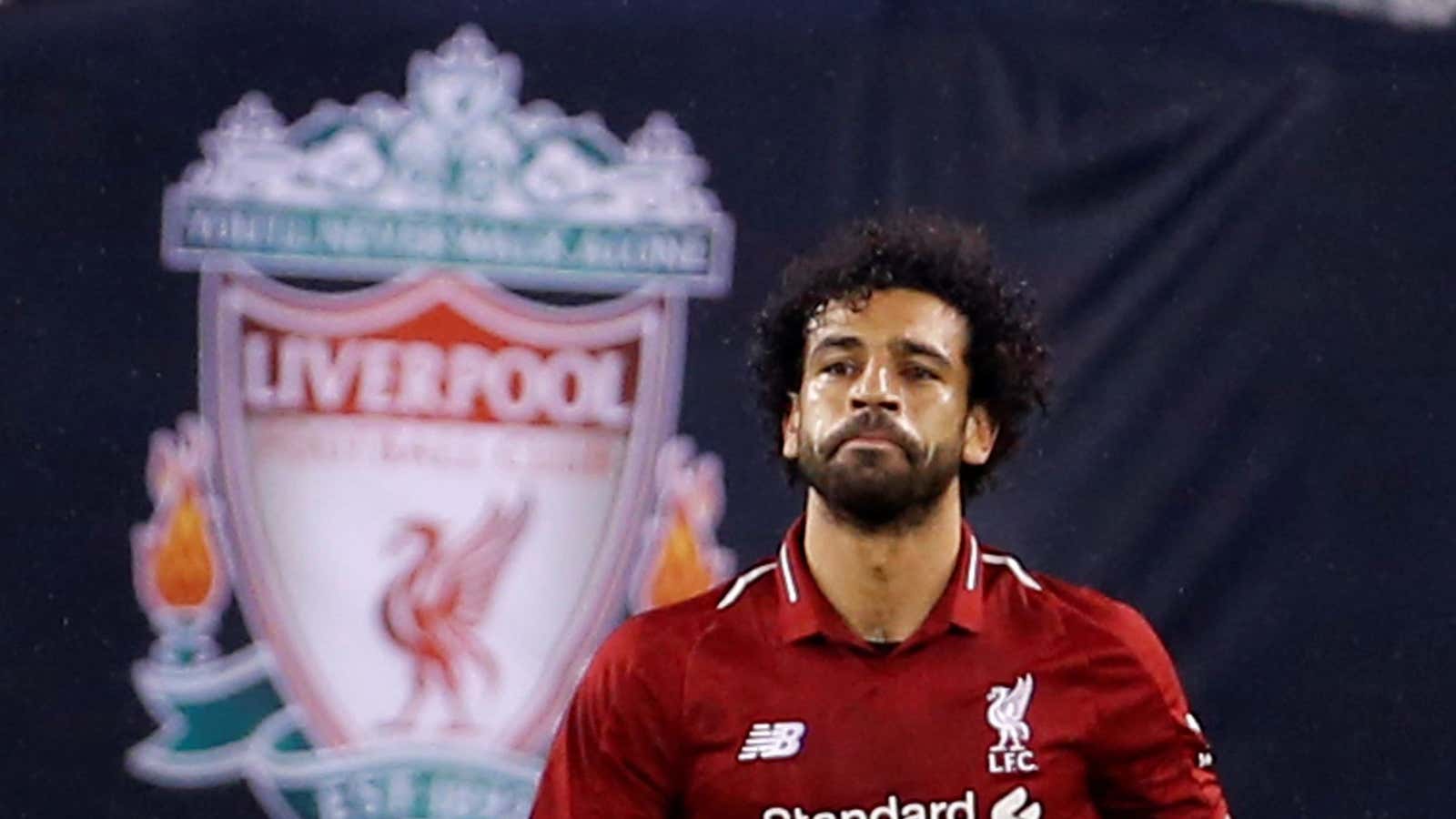The influence of Egyptian soccer star Mohammed Salah extends far beyond the pitch.
A new study shows the player’s meteoric rise in the English Premier League has contributed to lessening anti-Muslim rhetoric and cutting hate crimes in the United Kingdom. The paper was published in late May by the Immigration Policy Lab, which measures the effect of immigration and integration policy on the social, political, and economic spheres.
The researchers found Merseyside county, home to Liverpool, experienced an almost 19% decline in prejudicial crimes after 2017 when Salah joined. The academics also analyzed 15 million tweets for Islamophobic sentiment and found a similar “Salah effect”: The number of anti-Muslim tweets sent by Liverpool fans dropped from 7.3% to 3.8%. What’s more, researchers also found that exposure to Salah’s religious practices resulted in a 5% uptick in the sense that Islam is compatible with British values.
Muslims in Britain have over the years complained of bias in daily life and even in getting hired. And even when they don’t face physical violence, some have lamented the fact that they are often stared at in public or ignored in retail outlets.
The findings of the Salah study, the authors write, “suggest that positive exposure to out-group celebrities can reveal new and humanizing information about the group at large, reducing prejudiced attitudes and behaviors.”
In the past two years, Salah has emerged a global soccer star, making big strides in the world’s most-watched soccer league. In 2018, he set a new record for the most goals scored in a 38-game league season and the most goals scored by an African in a single season. His stardom has seen his boots displayed at the British Museum next to the vast Egyptian collection there, and he is among a small league of Africans feted with the prestigious Professional Footballers’ Association player of the year award.
The 27-year-old also helped his home country of Egypt—where he enjoys god-level status—qualify for the 2018 World Cup, its first participation in almost three decades.
Amid all of this, Salah has risen as a symbolic figure embodying the values of Islam. After scoring goals, the Egyptian usually raises his hands to the sky in supplication, kneels, and prostrates in front of roaring audiences as Muslims do during the five obligatory daily prayers. And fans have embraced his faith and his public displays of it, as shown by one of the most popular pro-Salah chants at Liverpool games: “If he’s good enough for you, he’s good enough for me, if he scores another few, then I’ll be Muslim too.”
